Hollywood backers of Vice were ‘investing in the ideas of a Nazi,’ says ex-employee Eddie Huang
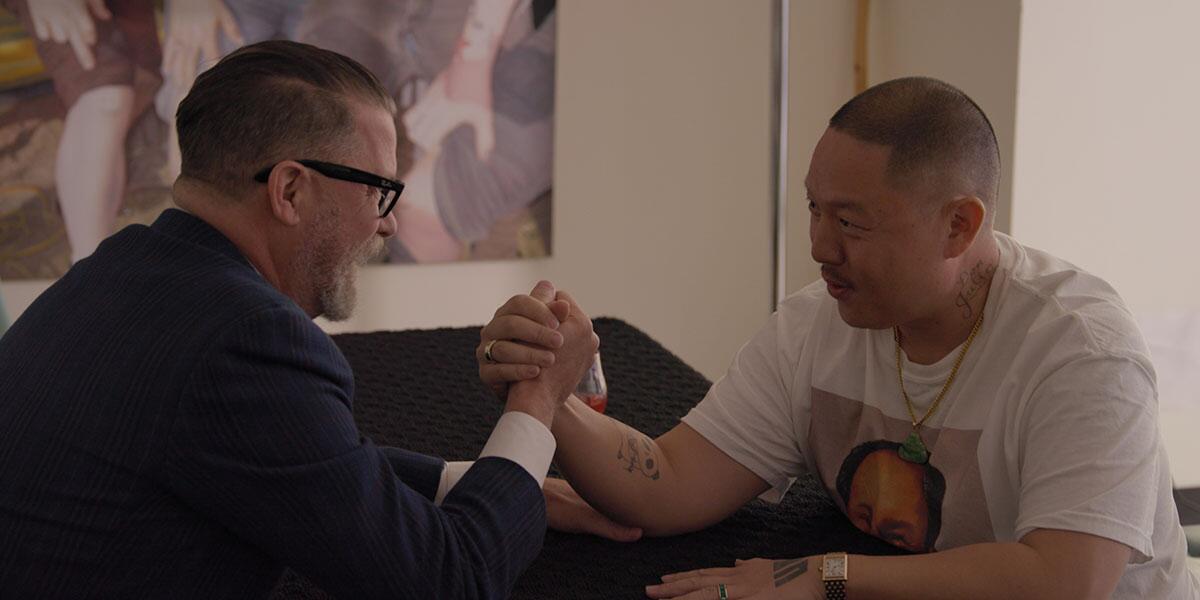
- Share via
TORONTO — Welcome to a special edition of the Envelope newsletter, your comprehensive guide to awards season. We’re coming to you throughout opening weekend of the 2024 Toronto International Festival, where the entertainment experts at The Times will bring you interviews, opinion and analysis from one of the events that traditionally kicks off the Oscar race. Sign up here to get it in your inbox.
From the Oscars to the Emmys.
Get the Envelope newsletter for exclusive awards season coverage, behind-the-scenes stories from the Envelope podcast and columnist Glenn Whipp’s must-read analysis.
You may occasionally receive promotional content from the Los Angeles Times.
The day’s buzziest premieres
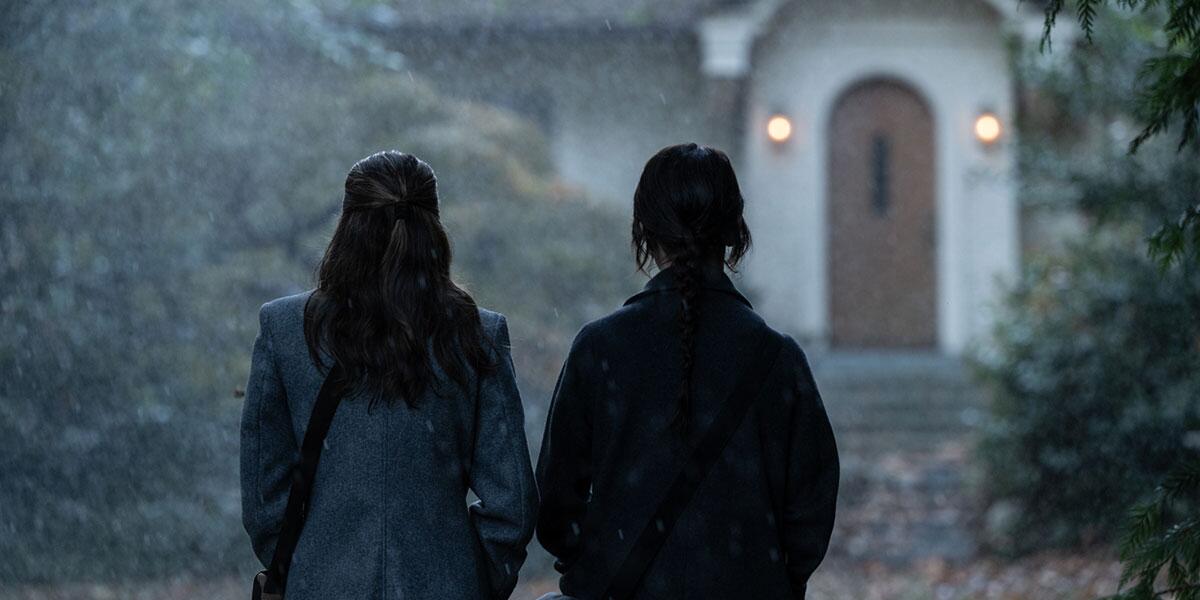
Another A24 title, the crowd-pleasing romantic dramedy “We Live in Time,” may have arrived at Toronto with more advance buzz — thanks in part to the viral popularity of a carousel horse — but for my money it’s “Heretic,” a horror movie starring rom-com idol Hugh Grant, that seems most likely to surprise. Here Grant, who’s been open about his desire to retire his image as a charming English love interest, teams with “A Quiet Place” screenwriters Scott Beck and Bryan Wood for a sinister tale of the Holy — and not-so-holy — Spirit. When Sister Paxton (Chloe East) and Sister Barnes (Sophie Thatcher) arrive at Mr. Reed’s (Grant) doorstep to evangelize for the Church of Jesus Christ of Latter-day Saints, they’re unprepared for their warm reception... and then find it hard to leave. Sunday’s world premiere of “Heretic” seems like the perfect theatrical kickoff to spooky season, and a startling evolution of the cads Grant has taken to playing in TV series like “The Undoing” and “A Very English Scandal.” I’ll certainly be there: just a man, standing in front of a movie star, asking him to rip my face off. —Matt Brennan
Other notable world premieres Sunday include Angelina Jolie’s latest directorial feature, “Without Blood”; “Rez Ball,” an inspirational sports drama about a basketball team in Navajo Nation; and “The Assessment,” a sci-film about climate change starring Alicia Vikander, Elizabeth Olsen and Himesh Patel. See the full schedule here.
READ MORE: Stevie Van Zandt: Bruce Springsteen’s health is ‘completely back to normal’
An awards contender to watch for
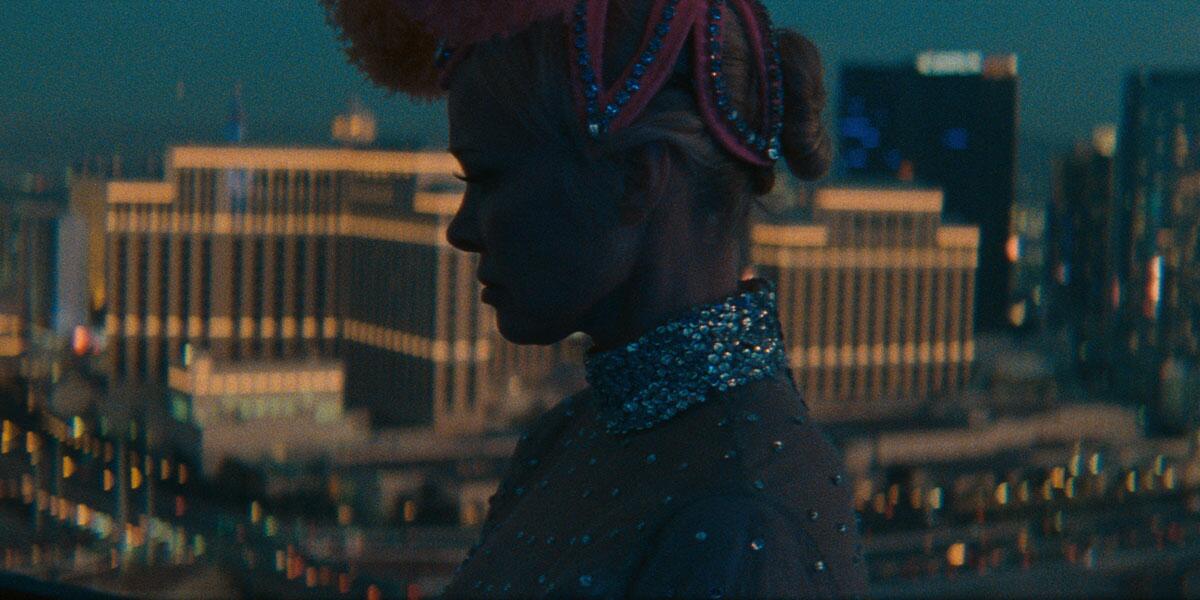
Miley Cyrus, “The Last Showgirl” (original song, “Beautiful That Way”)
“I think I’ve been getting ready my whole life for this role,” Pamela Anderson said onstage after Friday’s world premiere of “The Last Showgirl,” a film in which she portrays a woman who has been playing the same role for decades and finally has to decide for herself what comes next.
The film is directed by Gia Coppola from a screenplay by Kate Gersten and it’s Anderson’s performance as Shelly, a Las Vegas showgirl who is at loose ends when the show she has been appearing in for 30 years abruptly closes, that people will most immediately be talking about. Tender, vulnerable and deeply empathetic, Anderson reveals sides of herself that have never been seen in a performance before. The supporting cast includes Jamie Lee Curtis, Dave Bautista, Kiernan Shipka, Brenda Song and Billie Lourd, all who also give performances of vivid depth.
But there is an additional star who makes an appearance of sorts for the film’s finale. As Shelly begins one final performance done up in her feathers, glitter and rhinestones, a smoky ballad comes in and a familiar, husky voice rings out. Playing on the soundtrack is the new original song “Beautiful That Way,” sung by Miley Cyrus, produced by Andrew Wyatt and written by Cyrus, Wyatt and Lykke Zachrisson.
The song captures the spirit of so much of the film, the difficult transaction of beauty as a part of one’s professional life and sense of self-worth, the broken ache of Cyrus’ voice conveying a sense of wounded resilience.The song’s co-writer and producer Andrew Wyatt co-wrote the Oscar-nominated “I’m Just Ken” from “Barbie” and won an Academy Award for co-writing “Shallow” from “A Star Is Born.” “The Last Showgirl” is for sale at the festival and among the many things to recommend about it, a sharp distributor could make a strong campaign for original song. Who wouldn’t want to see this at the Oscars? —Mark Olsen
WATCH: Pamela Anderson talks showgirls, Vegas and loving to act in ‘The Last Showgirl’
Looking for more in-depth coverage on all things Envelope?
Shop our collection of The Envelope magazines today.
Q&A of the day
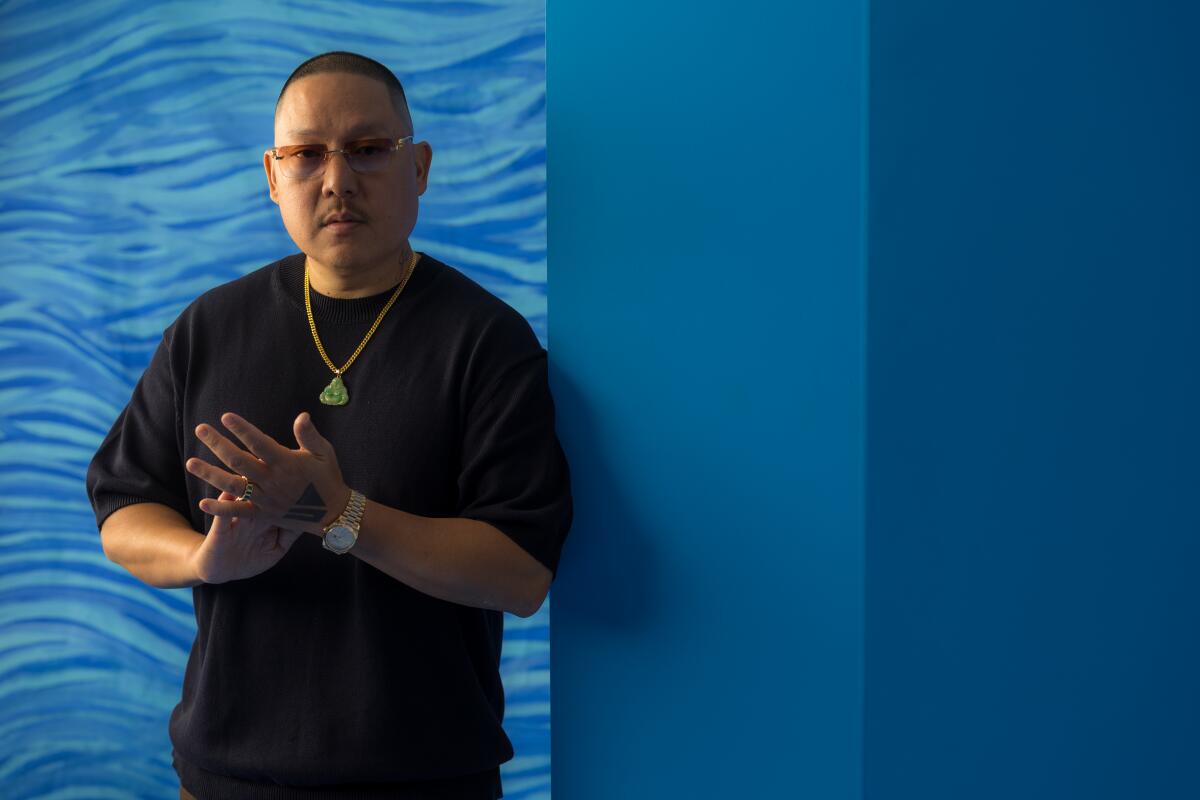
In “Vice Is Broke,” Eddie Huang charts the rise and fall of the youth media company that started as a scrappy free publication in Montreal, became the irreverent bible of Brooklyn hipsters in the aughts and was eventually valued at billions of dollars before declaring bankruptcy in 2023. A cautionary tale about co-opting the counterculture, the documentary features interviews with key figures in the company’s history — including its controversial co-founder, Gavin McInnes, who was ousted from the magazine in 2008 and later founded the Proud Boys, the far-right militia. (Notably absent is former chief executive Shane Smith, who appears only via indignant text messages.) For Huang, the issue is personal: the author, chef and filmmaker hosted “Huang’s World,” a food show on the Viceland cable network.
Do you recall when you first saw the magazine and what your impressions were?
The first time I encountered it was around 2005 at my homie’s apartment [in the East Village]. We were smoking weed. It’s a thing: You pick up a magazine and you break up the bud on it. I was like, “Yo, this magazine is crazy.” At first, I didn’t understand it. I came from Orlando, Fla. I was like, “This is a magazine for ratchet white dudes.” He’s like, “No, it’s like, downtown culture.” It was in American Apparel all the time. From 2005- 12 it was just like, if you were in New York and you were downtown, you’d end up at those parties.
Why do you think it became so big?
They committed to the youth culture of the moment. That’s what Supreme, American Apparel and Vice did. They were an extension of places like [the Lower East Side bar] Max Fish. It was just a place for young people who had alternative ideas to congregate. Vice was a place you could just be yourself. And the weirder you were, and the more different you were, the more collateral and value you seemed to have to them.
What motivated you to make this documentary?
It has been super sad watching the whole company implode. I’ve always been very conflicted about my time at Vice. I love the people I worked with, but management seemed to be caught between their financial ambitions and what the magazine actually stood for. They drew us in with a set of values that were countercultural, and then they were selling those values out from under the table. The impetus for the doc was when I started to see a lot of people being mistreated. I heard of so many friends who hadn’t gotten paid, or were fired without cause. When the bankruptcy happened, I saw my opportunity to get out from under my NDA. I’m a trained attorney. I knew enough to say, “Vice owed me money. I could probably trade that debt and get out from under my NDA and speak on everything that I saw there.”
You got Gavin to participate. How did you manage that?
I got his phone number from a friend who is still in contact with him. Within a few hours, he called me. He grilled me about what my purpose was. I don’t agree with his opinions. I absolutely think he goes way too far. Gavin feels he has a right to tell a joke and say whatever he wants, but sometimes it’s not about whether you have the right to do it or not. It’s, “Should you do it?” He seems to care about exercising his rights in a very theoretically absolute manner. The other people at Vice used Gavin for a scapegoat for a lot of things, but when you really explore the rise and fall of the company, it’s Gavin’s voice and artistic bent and style that is at the core of Vice. They were looking for someone to bury, and Gavin’s easy, because he will bury himself. But his voice and opinions are so entangled and at the foundation of Vice. These companies like Disney are investing in the ideas of a Nazi. You cannot separate the two. Vice is this guy’s project.
You experienced some of this when you went to Jamaica with Vice. Tell me a little bit about the pressure you faced to cover communities of color in a problematic way.
My sole purpose in going to Jamaica was to show a softer — perhaps more boring — side. I felt that a lot of immigrants and young people who wanted to see each other as whole human beings, as opposed to stereotypes, would appreciate an episode that was like, “Look, we’re not going to go to Trenchtown to see the gangs and the drugs. We’re going to see schoolchildren.” When I got back [from Jamaica], [chief creative officer] Eddie Moretti was just like, “Where are the guns? Where are the drugs?” I said, “Any time you go shoot a Black community, it’s a ghetto safari.” Then I got suspended. There was this big conversation when I came back about staying away from political things, focusing on food and being the fun time guy.
When it comes to Gavin, people in the documentary offer competing views — he’s a racist, he’s a nihilist, he’s doing a bit. What do you think?
I will answer your question honestly. I don’t think anyone should agree with me and I don’t support anything he says, but he’s such an intelligent person. When you sit with him, there are moments of kindness. I spoke to women from his era [at Vice], they were like, “He was the guy that showed up for me when my father passed away.” I think he’s doing an Andy Kaufman thing. I think he’s doing it to make a point that none of us will know until the end. I don’t think there’s much truth to [what he says], but he’s oddly, extremely representative of a large segment of society. You see this radical conservative movement all around the world. I don’t know what Gavin’s plan is. I don’t know if it’s positive. I don’t think it is, but I do think this is some type of Andy Kaufman thing.
It’s interesting that Shane is the one key figure who didn’t sit down with you.
He threatened legal action, sent text messages to me. He said a lot of things. Some of the texts are in the doc. I think Shane has a lot to say and wants to battle it out. But as is consistent with Shane, he always makes the smart business and legal decision. He’s not actually punk rock. He was always the salesman.
In the story of Vice, do you think there was an inflection point where the demise became inevitable?
If there’s one moment that I think everyone can point to it’s the Viceland deal. The reason we were good, as [journalist] Simon Ostrovsky talks about in the doc, is that we could do whatever we wanted. We could post things whenever we wanted. But once our shows had to go through the corporate cable studio, they weren’t the same. The things that we were doing at Vice belonged on the internet — the swiftness, the quickness, the freedom and the ratchetness of it all belonged on the internet, and it belonged to the kids. Once it went to cable, it belonged to the adults.
— Meredith Blake
Inside the L.A. Times Studio
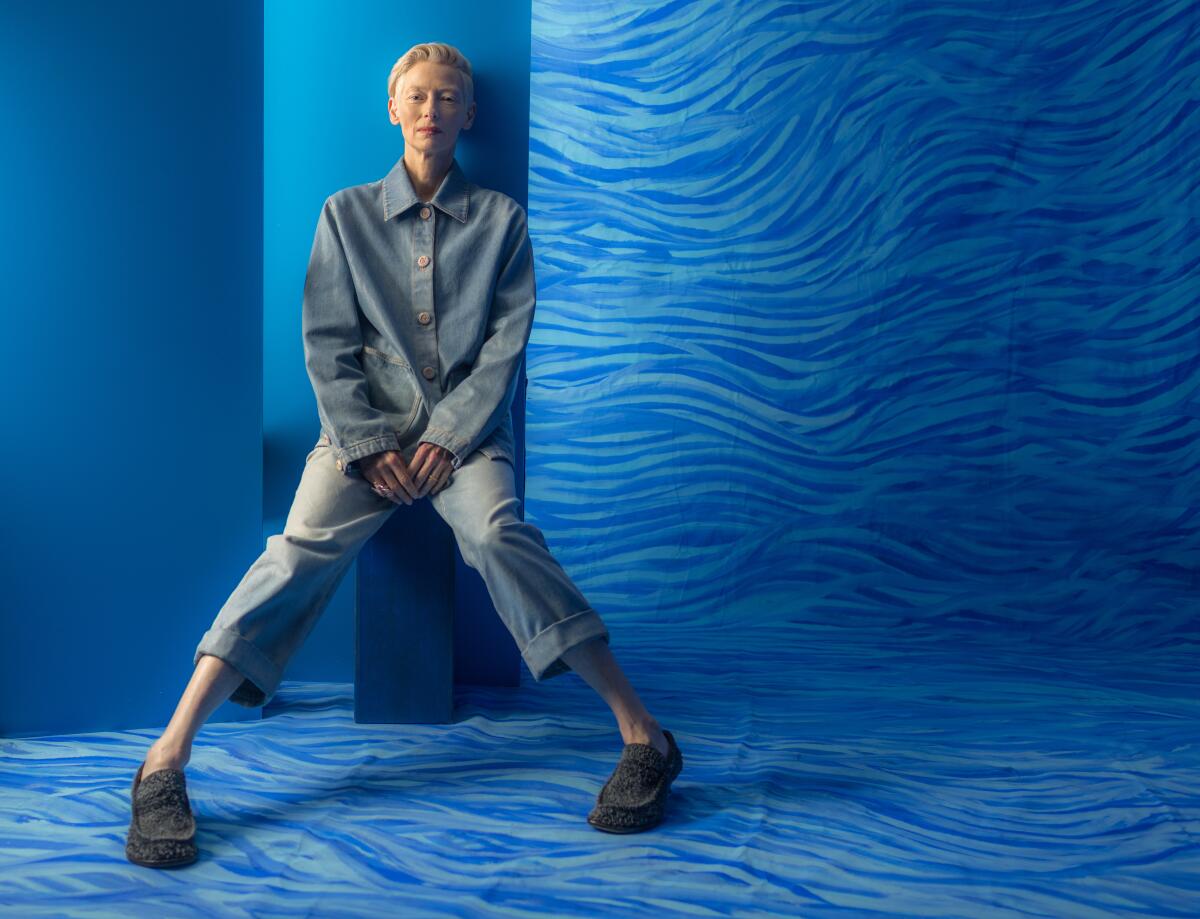
SEE MORE: Jennifer Lopez, Jacob Elordi, Tilda Swinton and more visit L.A. Times Studio at TIFF
WATCH: Jennifer Lopez and the crew from “Unstoppable” talk favorite sports movies
WATCH: Tilda Swinton talks death with dignity and the joys of working with Pedro Almodóvar
WATCH: Brett Goldstein on soul mates and “talking about” “Ted Lasso’s” fourth season
WATCH: The sounds that drive you crazy with the team behind “The Listeners”
Feedback?
I’d love to hear from you. Email me at [email protected].
Can’t get enough about awards season? Follow me at @glennwhipp on Twitter.
Only good movies
Get the Indie Focus newsletter, Mark Olsen's weekly guide to the world of cinema.
You may occasionally receive promotional content from the Los Angeles Times.





